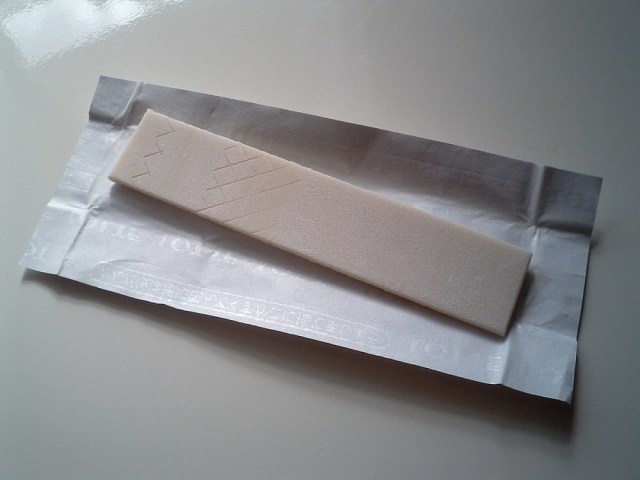
Station president vows to “restore viewers’ trust.”
Ohayo Asahi Desu is a weekday morning talk show broadcast by ABC TV, a regional network serving the Osaka area. As part of the episode aired on January 13 Ohayo Asahi Desu sent segment director/field reporter Mayuko Tsuda out to Tanabe, Wakayama Prefecture, for a live report on the town’s Kawayu Onsen hot spring district.
It’s the sort of light news that forms the breakfast-time bread and butter of Japanese TV programming, but the segment has now prompted multiple apologies from ABC TV because of what happens at the 14-second mark in the clip below.
The in-studio Ohayo Asahi Desu anchors, having noticed Tsuda working her jaw during her report, start wondering aloud about it. “Are you eating something?” asks one, followed by another observing “You’ve been chewing on something the whole time” and “What are you munching on?” Flustered, Tsuda covers her mouth and says “I’m sorry. Sorry,” before admitting “I was chewing gum” and that she’s now swallowed the piece to get rid of it.
We should probably take a moment here and talk about how chewing gum fits into Japanese society and interpersonal etiquette. The selection may not be as extensive as it is in the U.S., but in Japan, pretty much every convenience store stocks chewing gum. However, even though Japanese chewing gum is all flavored, it’s not all that commonly enjoyed as a sweet snack substitute. Instead, in Japan chewing gum is primarily seen as either something you chew to freshen your breath, or something to chomp on when you’re sleepy, with the logic that working your jaw muscles will help ward of drowsiness.
The result is that gum is primarily seen as something to chew discretely when you’re not interacting with other people. It’s rare to see someone in Japan chewing on a piece while talking to a friend, and you’ll pretty much never see service workers or other people who are on the clock and expect to be in customers’ line of sight chewing gum either. So a TV reporter, who knows the camera is going to be pointed directly at them, visibly chewing gum is a pretty big breach of etiquette in the Japanese media sphere.
“Anyway, anyway, anyway,” says Tsuda, trying to move on from the faux pas, but a studio anchor adds a “We don’t go on camera chewing gum.” There’s a lot of laughter on both sides of the exchange, but it’s hard to tell how much of it is genuine amusement and how much is trying to vent some of the awkwardness of the situation. At the end of that day’s Ohayo Asahi Desu broadcast, lead studio anchor Keisuke Iwamoto issued an on-air apology on behalf of the program, saying:
“Earlier, in a remote report, one of our reporters appeared on air while chewing gum. This was very disrespectful to both the people of Kawayu Onsen, who helped with the report, and to our viewers. We deeply apologize.”
The incident attracted enough negative responses on social media, including people saying they changed the channel after seeing Tsuda’s behavior, that ABC TV president Shinya Yamamoto addressed the topic in his scheduled New Year’s press conference, which was held on January 20, one week after the Ohayo Asahi Desu episode aired, saying:
“Many viewers have pointed out and criticized [the on-air gum chewing]. Ordinarily, anyone should already be aware, and not need to be told, that it is rude to speak to others while you have something in your mouth. It is something that especially should not be done while appearing on camera. Naturally, after the broadcast we strictly cautioned the person involved and urged her to be more aware of this. She regrets what happens more than anyone, I believe.”
Yamamoto went on to say that the station’s collective regret has strengthened their resolve to “restore viewers’ trust” in the program.
As for the event Tsuda was covering, Kawayu Onsen has a unique annual karuta event. Karuta is a traditional game in which a narrator reads excepts from classical Japanese poems and the players compete to be the first to snatch up the card with the matching words written on it. The cards are usually spread out on the floor, but in January Kawayu Onsen organizes hot spring karuta games, with hiragana characters written on blocks of wood that float in the onsen water.
▼ This year’s event, held on January 22, featured a total of 60 players.
Given the obviously lighthearted tone of the event, it might seem all the stranger that Tsuda’s gum-chewing was treated as such a serious transgression. There’s a key distinction, though, in that while the event can be as silly as it wants to be, it’s still considered proper etiquette in Japan for an outside party, like ABC TV and its reporters, to treat it with respect, and in Japan that includes getting rid of your gum before you’re on the air.
Source: Tokyo Sports Web via Jin, Wakayama Keizi Shimbun
Top image: Wikipedia/Lusheeta~commonswiki
● Want to hear about SoraNews24’s latest articles as soon as they’re published? Follow us on Facebook and Twitter!

No hay comentarios:
Publicar un comentario